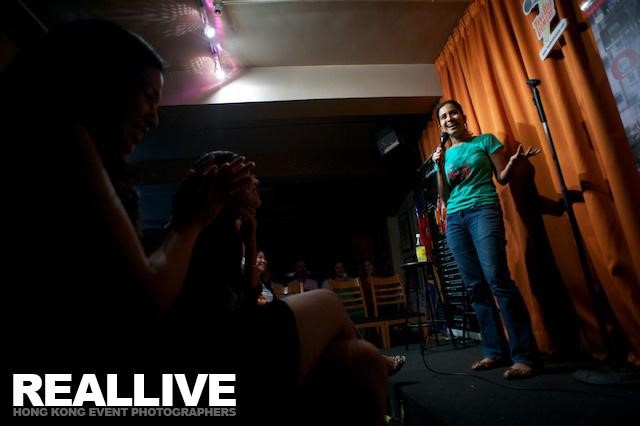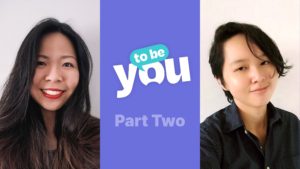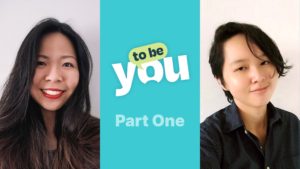It’s no laughing matter, or is it?
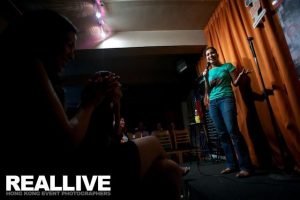
The pandemic has forced many whose work relied on face-to-face interaction to rethink their ways of operating. And stand up comedy is no different. For every Trevor Noah with the Daily Social Distancing Show, and Ted Alejandro, who filmed a 1-hour comedy special, Stay at Home Comedian, at home on his phone, there are others who are struggling to move their work online. It’s hard when it feels like so much has changed and things that used to work well, are no longer available. But where some doors closed, others opened. This article looks at up and coming comedians who have innovated and built inclusive communities in new and much-needed ways.
As an amateur standup comic, I was used to attending live events – whether open mics to try out ideas or showcases to perform. But with COVID-related restrictions on gatherings and a growing understanding of aerosol transmission, it turns out, sadly, that laughter was not the best medicine.
When live comedy started moving online, the standup community pooh-poohed the idea. It’s an art form that needs live engagement to thrive. It’s just not the same online. You can’t hear the laughter. The energy is not the same. They weren’t wrong, but they also weren’t right.
Building a new type of community.
While many were grumpy about the new normal, a few rolled up their sleeves and got to work. People like Cynthia Ouandji, founder of Bangou Productions, who used the opportunity to pivot to more interactive and inclusive formats.
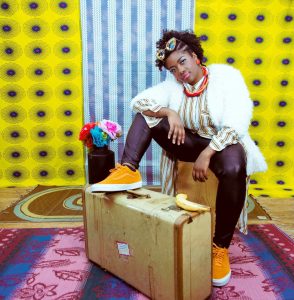
Where previously it was difficult to get comedians to meet each other before shows, now it was easy as nobody was stuck in traffic or chatting outside. Cynthia took advantage of this change to create a show format where comedians felt familiar enough to heckle each other in a “punch-up” style, positive way in the “CCC Show! – Your Fav Heckle Comedy Show“. With this hybrid comedy-talk show model, Cynthia has built a unique experience, that is gaining a reputation for banter between comedians.
Cynthia has also used the online model to elevate minority voices. With her “On Black” series, each show focused on a minority group speaking about the Black Lives Matter movement from their cultural perspective. So far she has featured White, South Asian, Native American, and Pan-Asian nights – hosting sensitive conversations about racism and bias, but in an environment of safety, openness, and of course, humor. To date, she’s raised over $1200 dollars for charitable causes through her shows, and her videos have collectively amassed over 4000 views.
Cynthia used technology as a way to enhance her content and as a tool to include others.
Removing irrelevant barriers
Previously, if you wanted to perform comedy in foreign locations, you either tried to get on an open mic while traveling or you got famous enough that people paid you to do it. The former was infrequent. The latter was as likely as winning the lottery.
Enter Niko Lukoff, creator of the Displaced Comedians Facebook group. While other comedy Facebook groups were already in place, Niko uniquely focused on sharing information about virtual mics. And across the world, comedians embraced the space to find opportunities in their new reality. Since April 2020, more than 3,400 comedians have joined the group and the number continues to grow.
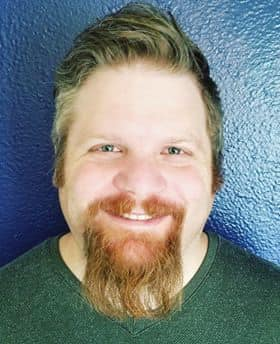
What the Displaced Comedians group has done particularly well is create a vibrant space for the early phases of the creative process where testing new material and quick, directional feedback are the objectives. Previously, trying out new material meant waiting for your turn at a bar open mic, often late into the night. Online performances certainly aren’t perfect, but they do lower the barriers for experimentation and iteration.
Even if things were to revert to some semblance of the old way, biased to live performance, I can imagine a new balance where more of the creative iteration happens online, while performances happen live. Niko’s work has paved the way for this new model, once again leveraged on technology.
Finding new audiences
Juliana Heng is a stand-up comedian, storyteller & spoken word poet. With the opening of online comedy borders, Juliana was able to take their 1-hour show, “Walking on Spectrum” about Autism Spectrum Disorder (ASD) global, something that would have been a challenge in the previous paradigm that is biased for in-person interactions.
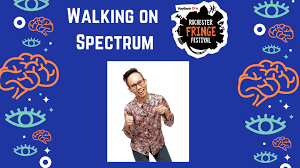
And as a result, Juliana is able to build awareness of what is largely an invisible disability, especially among women.
“ If you are curious or you know somebody who walks on the spectrum, check out their show and support the arts…Juliana is a positive light that comes out of these dark times.”.
Comedian and TED Speaker Soness Stevens speaks to the access to such a niche subject
To date, Juliana has been featured in the Adelaide, Auckland, and KeyBank Rochester Fringe Festivals.
And this applies to TechforGood and better.sg because…?
As an initiative that works to build tools to address societal problems a large part of our work involves connecting with people, engaging them, and giving them a chance to express themselves.
Each of these stories has shown how taking things online can create opportunities that were difficult in the IRL model. Cynthia built micro communities and safe spaces for difficult conversations. Niko created a forum dedicated to the virtual comedy format. And Juliana, broadened the audience for her very personal but universal message, helping many others feel seen along the way. All three, by standards, are new in the comedy scene but have leapfrogged veterans with their openness to change and ability to see opportunities where others saw obstacles.
Whatever you may be thinking about doing, I hope this article provides some inspiration and assurance that it is possible to build strong and meaningful communities online. And in some cases, the lack of physical borders enables better and more diverse groups to connect. Instead of thinking about what we’ve lost, it’s an opportunity to think about who we include in this newer, more equitable format. There are many low-code ways to find your people and it’s worth reaching out, in these changing times.
About the author: Smita is a mom, stand-up comic, homesick Singaporean, and tech-marketer who is interested in elevating alternative voices and stories in comedy. You can see her projects on innovating comedy formats at her website, almostfavorite.com, and listen to her comedy podcast on motherhood, We Heart Mom Jokes

